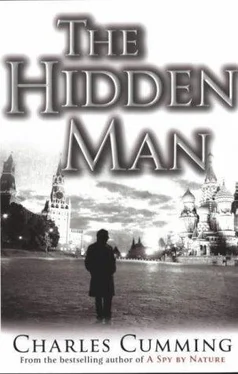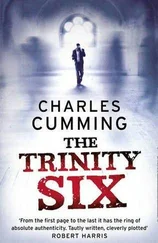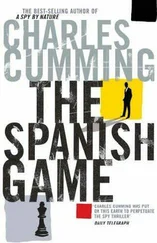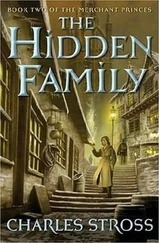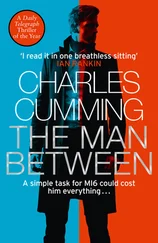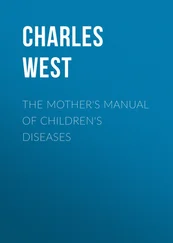Charles Cumming - The hidden man
Здесь есть возможность читать онлайн «Charles Cumming - The hidden man» — ознакомительный отрывок электронной книги совершенно бесплатно, а после прочтения отрывка купить полную версию. В некоторых случаях можно слушать аудио, скачать через торрент в формате fb2 и присутствует краткое содержание. Жанр: Шпионский детектив, на английском языке. Описание произведения, (предисловие) а так же отзывы посетителей доступны на портале библиотеки ЛибКат.
- Название:The hidden man
- Автор:
- Жанр:
- Год:неизвестен
- ISBN:нет данных
- Рейтинг книги:3 / 5. Голосов: 1
-
Избранное:Добавить в избранное
- Отзывы:
-
Ваша оценка:
- 60
- 1
- 2
- 3
- 4
- 5
The hidden man: краткое содержание, описание и аннотация
Предлагаем к чтению аннотацию, описание, краткое содержание или предисловие (зависит от того, что написал сам автор книги «The hidden man»). Если вы не нашли необходимую информацию о книге — напишите в комментариях, мы постараемся отыскать её.
The hidden man — читать онлайн ознакомительный отрывок
Ниже представлен текст книги, разбитый по страницам. Система сохранения места последней прочитанной страницы, позволяет с удобством читать онлайн бесплатно книгу «The hidden man», без необходимости каждый раз заново искать на чём Вы остановились. Поставьте закладку, и сможете в любой момент перейти на страницу, на которой закончили чтение.
Интервал:
Закладка:
Ben nodded, as if gradually acknowledging the hopelessness of his situation. He spent the next thirty minutes inside a white police Transit van, sipping heavily sugared tea from a polystyrene cup. An older officer, rank of DCI, explained how a neighbour coming back from a party had noticed that his father’s door had been left ajar. He had discovered the body and immediately telephoned the police. No, they had no idea of a suspect: they were still at a very early stage in their enquiries. Yes, they would keep him apprised of any developments. Ben would be asked to identify the body in a few hours’ time and given the chance to answer any questions that might help to piece together his father’s last movements.
‘And may I add my sincere condolences, Benjamin,’ the DCI said. ‘This must be a very difficult time for you. Why don’t I have one of my colleagues take you home so you can have a shower or something before we take you up to the station?’
Almost as if somebody had been listening from outside, the back of the van opened up and Ben was introduced to a black policewoman whose thick leather gloves felt damp as he shook her hand.
‘Will you escort Mr Keen back to his house, Kathy?’
‘Of course, sir.’
‘We’ll arrange for a car to come and pick you up at around ten.’
‘Fine,’ Ben said, now exhausted to the point of collapse. He wondered when he would ever sleep again. ‘Thanks for the tea,’ he said, and stepped down on to the road.
The street was now a trench of stunned activity. Ben experienced a strange kind of amazement that a new day was beginning, the city oblivious to his loss. Residents were emerging from nearby buildings, asking questions of uniformed officials, walking backwards as they stared up at the windows of the fourth floor, like boxers on the ropes. Marchant was still standing on the door, taking the names of everybody who entered or came out of the building.
Standing fifty metres away, beside a battered telephone box, Taploe watched Ben emerge from the van looking lost and broken. The policewoman ushered him down the street, under the taped cordon and, finally, to a car parked two blocks away that was just a shadow in the distance. Minutes later, Keen’s body was brought downstairs on a stretcher and placed in the back of an ambulance which drove slowly away in the direction of Edgware Road. Taploe watched this, listening to the appalled murmurings of the crowd, and wondered if he was witnessing the final act in his long and as yet undistinguished career.
Nevertheless, he sensed the remote possibility of second chance. Clear the trail, he told himself. Distance yourself from the victim. And from his coat pocket, Taploe extracted the Post-it note he had removed from the door frame. Tearing it into six separate pieces, he dropped the shreds into a storm drain and went in search of a cab.
19
When they had buried Carolyn, seven years before, Ben and Mark had floated through the funeral in a trance of grief. Mourners had drifted in and out of focus, approaching them tentatively, offering their whispered condolences. Now and again one of his mother’s friends would take Ben to one side, her eyes swelled and puffy with tears, and attempt to make sense of what had happened. These conversations were all eerily similar: the friend would do most of the talking, invariably relating an anecdote which conveyed Carolyn in a good light, touching on her bravery throughout the long illness, her sense of humour, or the loyalty she showed to close friends. Ben was not cynical about this; he realized that it was a necessary and inevitable part of what the second-rate shrink he had briefly visited described as ‘the grieving process’. But on each occasion he had the distinct impression that he was being taken aside not to be consoled but rather, by his sheer presence, to offer consolation to his mother’s friends. The entire afternoon was like a dumb show of the English stiff upper lip: Ben said and did all the right things, kept his emotions in check for the good of the crowd, and felt a strong determination not to let anyone down.
A few days after the service he had had dinner with a friend whose mother had also died of cancer. They agreed that funerals benefited only the deceased’s acquaintances and distant relatives, providing them with an opportunity to make a public display of grief and respect before returning home, where the sadness, in most cases, would quickly dissipate. For closer relatives — husbands, wives, sons, daughters — the sense of loss took far longer to kick in. Ben and Mark, who had watched in hospital as the life literally drained out of their mother, had mentally prepared themselves for a funeral. The hard part was to follow, pain like a slow puncture lasting months, years.
Yet their father’s funeral was quite different. At the service to commemorate the life of Christopher Keen, Ben felt like a stranger.
More than seventy people came to the crematorium outside Guildford, not one of whom he recognized. Ben met his uncle — Keen’s younger brother — for the first time since he had been a pageboy at his wedding in 1974. There were work colleagues from Divisar, old Foreign Office hands, distant cousins with second wives huddled in impenetrable groups. A man in his early sixties wearing spit-polished brogues and a Life Guards tie introduced himself to Ben as Mark’s godfather, an ‘old university chum’ of Keen’s.
‘I haven’t been all that good at keeping up,’ he explained, as if the broad, gutless smile which accompanied the remark would in some way make up for this. ‘Rather abnegated my godfatherly responsibilities, I’m afraid.’
The service had been arranged jointly by Jock McCreery, his father’s oldest friend from his days in MI6, and Mark, who had flown back from Moscow immediately. Ben had had little input: he had been too busy dealing with the police. This had left him with little opportunity to talk to his brother, and the two hours that it took them to drive against the morning rush hour to Guildford was the longest period of time they had spent together since Keen’s murder.
Alice sat in the back seat, fielding calls from the features desk on her mobile phone. To every member of staff she said the same thing — ‘I have to go to a funeral. Don’t worry. I’m meeting him this evening. I’ll ring you as soon as I get back’ — until Mark’s patience finally snapped and he told her to switch it off. For days they had existed in an atmosphere of stunned upheaval. In the hours leading up to Carolyn’s burial an odd kind of order had asserted itself, an innate knowledge of how to proceed. But this was quite different: there was no template for their situation.
The crematorium car park was already full, with only two or three spaces remaining by the time Mark pulled in. An elderly man and woman, dressed in what looked like their Sunday best, were eating sandwiches from the open boot of a Vauxhall Astra, blue plastic mugs of tea resting on the bumper. Ben held Alice’s hand as they walked slowly towards a low building with an emerald green roof surrounded by carefully tended lawns. McCreery, his black tie whipped up over his shoulder by a strong winter wind, strode out to meet them at a military clip.
‘Mark,’ he said, pumping his hand. He had an instantly forgettable face. ‘And you must be Benjamin. I’m so sorry about what’s happened. And Alice. How good to see you. They say it’ll just be a few minutes.’ There were two small waiting rooms on either side of the entrance to the main chapel building. Both were crammed with people, separate groups of mourners attending different services. Keen’s relatives and friends had gathered in the left-hand area in a room no bigger than a badminton court. Facing them, down a narrow corridor, a cluster of men and women, many of whom were weeping, were being spoken to in hushed tones by an undertaker with a practised face of condolence.
Читать дальшеИнтервал:
Закладка:
Похожие книги на «The hidden man»
Представляем Вашему вниманию похожие книги на «The hidden man» списком для выбора. Мы отобрали схожую по названию и смыслу литературу в надежде предоставить читателям больше вариантов отыскать новые, интересные, ещё непрочитанные произведения.
Обсуждение, отзывы о книге «The hidden man» и просто собственные мнения читателей. Оставьте ваши комментарии, напишите, что Вы думаете о произведении, его смысле или главных героях. Укажите что конкретно понравилось, а что нет, и почему Вы так считаете.
